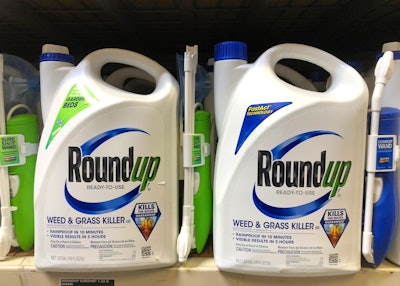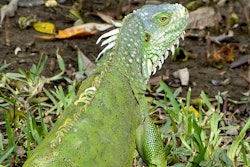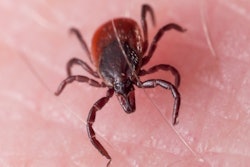
Studies show
Currently, the U.S. Environmental Protection Agency (EPA) says that the chemical glyphosate does not cause cancer in humans, but in 2015, the World Health Organization’s International Agency for Research on Cancer ruled it was a probable human carcinogen.
According to Science Direct, glyphosate is the most widely used broad-spectrum systemic herbicide in the world.
“Recent evaluations of the carcinogenic potential of glyphosate-based herbicides (GBHs) by various regional, national and international agencies have engendered controversy,” Science Direct says online. “We investigated whether there was an association between high cumulative exposures to GBHs and increased risk of non-Hodgkin lymphoma (NHL) in humans.”
Science Direct conducted a meta-analysis that included five case-control studies and the most recent update of the Agricultural Health Study (AHS) cohort published in 2018.
They concluded that when using the highest exposure groups when available in each study, the overall meta-relative risk of NHL in GBH-exposed individuals was increased by 41 percent.
“To contextualize our findings of an increased NHL risk in individuals with high GBH exposure, we reviewed available animal and mechanistic studies, which provided supporting evidence for the carcinogenic potential of GBH,” Science Direct says online. “Overall, in accordance with evidence from experimental animal and mechanistic studies, our current meta-analysis of human epidemiological studies suggests a compelling link between exposures to GBHs and increased risk for NHL.”
In recent news
According to The Guardian, Edwin Hardeman, a 70-year-old Santa Rosa man, was awarded $75 million in punitive damages, $200,000 for past economic losses and $5.6 million in non-economic losses after the judge ruled that Monsanto’s Roundup weed killer caused his case of NHL.
The Guardian reports that Hardeman was the second person to bring a Monsanto’s Roundup cancer case to trial and the first to bring it to the U.S. federal court.
Hardeman told The Guardian that he began using Roundup in 1986 when he started applying it on his property to control weeds. This, he says, led to his development of NHL, as he said when he used the chemical, it would sometime leak onto him while he sprayed it for many hours a day.
Hardeman told The Guardian that he stopped using Roundup in 2012, but on Christmas Day of 2015, a swollen lymph node was discovered on his neck. The following year, The Guardian reports that Hardeman was diagnosed with NHL.
“When you get Roundup on your skin…it will penetrate the cells of the skin, it will get into the tissues, it will then get into the lymph system and into the blood,” says pathologist Dennis Weisenberger, according to The Guardian. “My opinion is that to the best of medical certainty, I believe that Roundup is a substantial cause of cancer in people who are exposed to it in the workplace or in the environment.”
Hardeman’s trial wrapped up on March 18, and MotherJones.com says in the first phase of the trial, the jury ruled that the plaintiff proved “by a preponderance of the evidence” that his exposure to Roundup was a “substantial factor” in causing his NHL.
“The jury in this case deliberated for more than four days before reaching a causation verdict in phase one, an indication that it was very likely divided over the scientific evidence,” Bayer says in a statement released online after the conclusion of the Hardeman trial. “The legal rulings under which the court admitted expert scientific testimony from the plaintiff that it called ‘shaky’ is one of several significant issues that the company may raise on appeal. Monsanto moved to exclude this same evidence before trial.”
In the second phase, MotherJones.com says the same jury was asked to decide whether Hardeman had proven that Roundup was a “defective” product, that it “lacks sufficient warnings of the risk of NHL” and that “Monsanto was negligent by not using reasonable care to warn about Roundup’s [non-Hodgkin lymphoma] risk.” The jury ruled in favor of Hardeman on all three.
“We are disappointed with the jury’s decision, but this verdict does not change the weight of over four decades of extensive science and the conclusions of regulators worldwide that support the safety of our glyphosate-based herbicides and that they are not carcinogenic,” Bayer says in a statement released online after the conclusion of the Hardeman trial. “The verdict in this trial has no impact on future cases and trials, as each one has its own factual and legal circumstances. Bayer will appeal this verdict.”
According to MotherJones.com, there are currently 1,600 cancer cases related to glyphosate waiting to be heard by the Northern California District’s federal court.
According to ConsumerSafety, an estimated 1.4 billion pounds of Roundup is used in more than 160 countries each year, and there are more than 11,200 glyphosate-related cases waiting to be heard on a national level.
LegalReader.com reports that along with Monsanto, a Florida-based landscaping company is also being sued by a Palm Beach County mother of three currently battling Stage-4 esophageal cancer as a result of being exposed to Roundup at her job without being warned of the potentially harmful effects.
According to LegalReader.com, Melanie Lynn LaFond and her attorney Willie Gary are suing Monsanto over allegations of “negligent design and marketing”, along with For Ever Green Landscaping for failing to “warn and equip LaFond with proper gear while using Roundup.”
Between the years 2016 and 2018, LaFond claims she had to wear a backpack tank and spray Roundup, according to LegalReader.com.
“So, it wasn’t just a homeowner who is doing this 20 minutes or something like that, she was doing it regularly day in and day out over the course of two years, so her level of exposure is substantial,” attorney Larry Strauss told WPTV.
LegalReader.com says For Ever Green Landscaping hasn’t responded to their resquests for comments at this time.
Miami banning
The city of Miami, Florida, has already decided to ban the use of glyphosate to try and keep the potential hazard of cancer at bay.
According to EcoWatch, the environmental group Miami Waterkeeper posted on Twitter that Miami unanimously passed a resolution at the beginning of March to ban the spraying of glyphosate by city departments or contractors.
City officials, EcoWatch reports, are concerned that runoff containing glyphosate might have contributed to the recent bloom of blue-green algae, as well as the red tide that they say impacted the state last year. This, EcoWatch says, is when Miami Commissioner Ken Russell started looking into the city’s use of the herbicides.
EcoWatch says that Alan Dodd, Miami’s director of resiliency and public works, told Russell that the city had been using 4,800 gallons of glyphosate a year for weed killing on the sidewalks and streets of the city.
“Herbicides and fertilizers are often applied in excess to lawns and landscapes and can be lost to the environment in stormwater runoff and can degrade the water quality of streams, rivers, canals, lakes and coastal waters,” says the Miami Waterkeeper, according to EcoWatch. “They can also contribute to the creation of harmful algal blooms and the destruction of critically important habitats like seagrass beds and coral reefs.”
EcoWatch notes that both Stuart and Miami Beach have banned the use of glyphosate.











